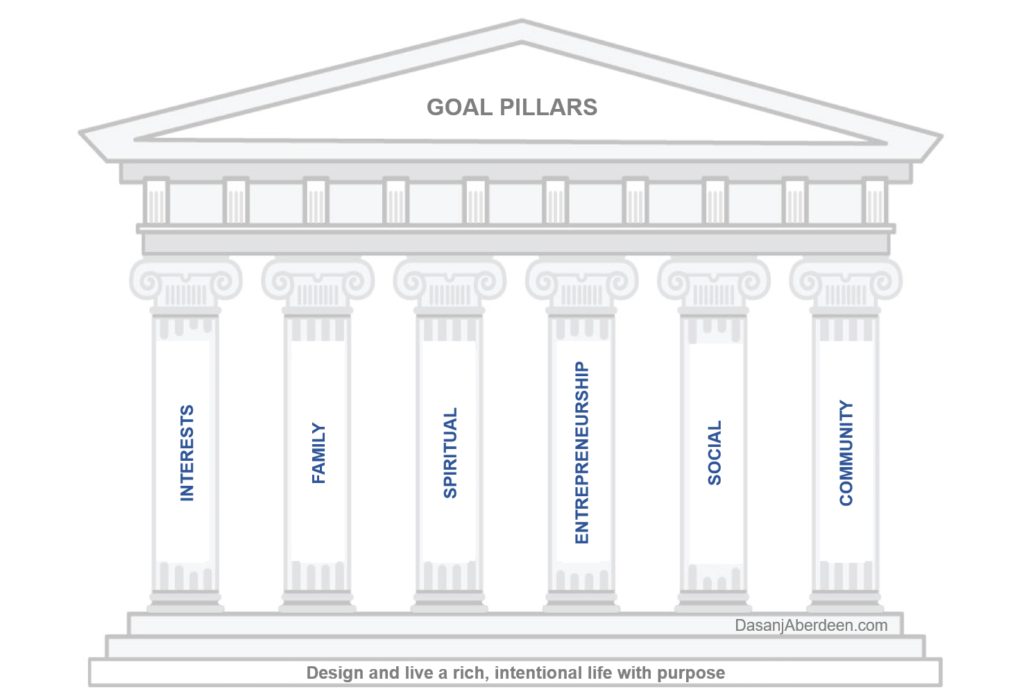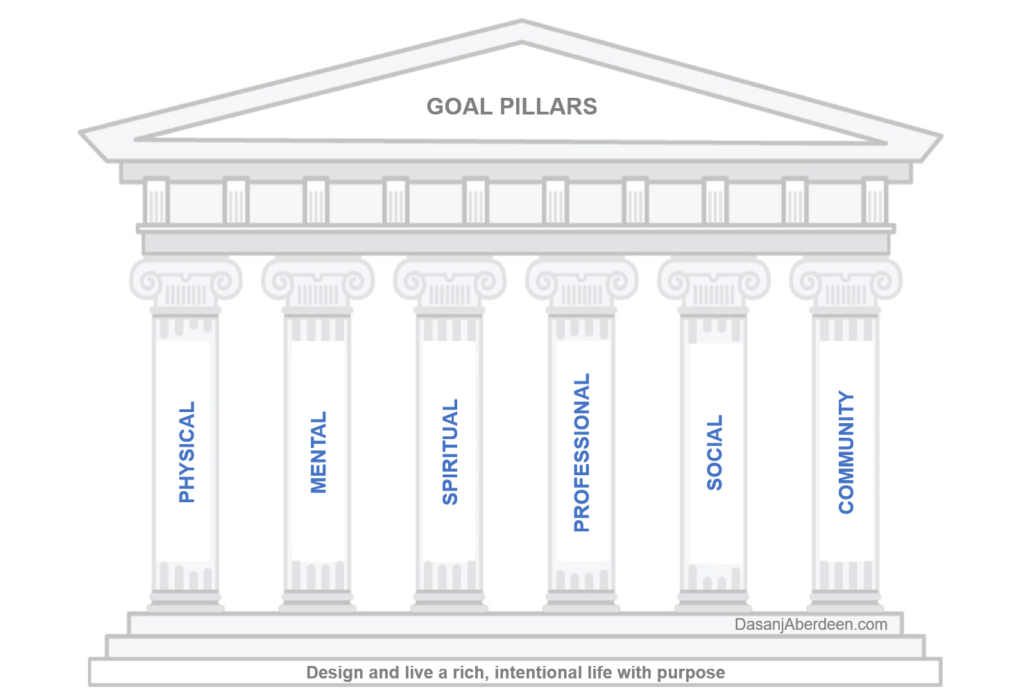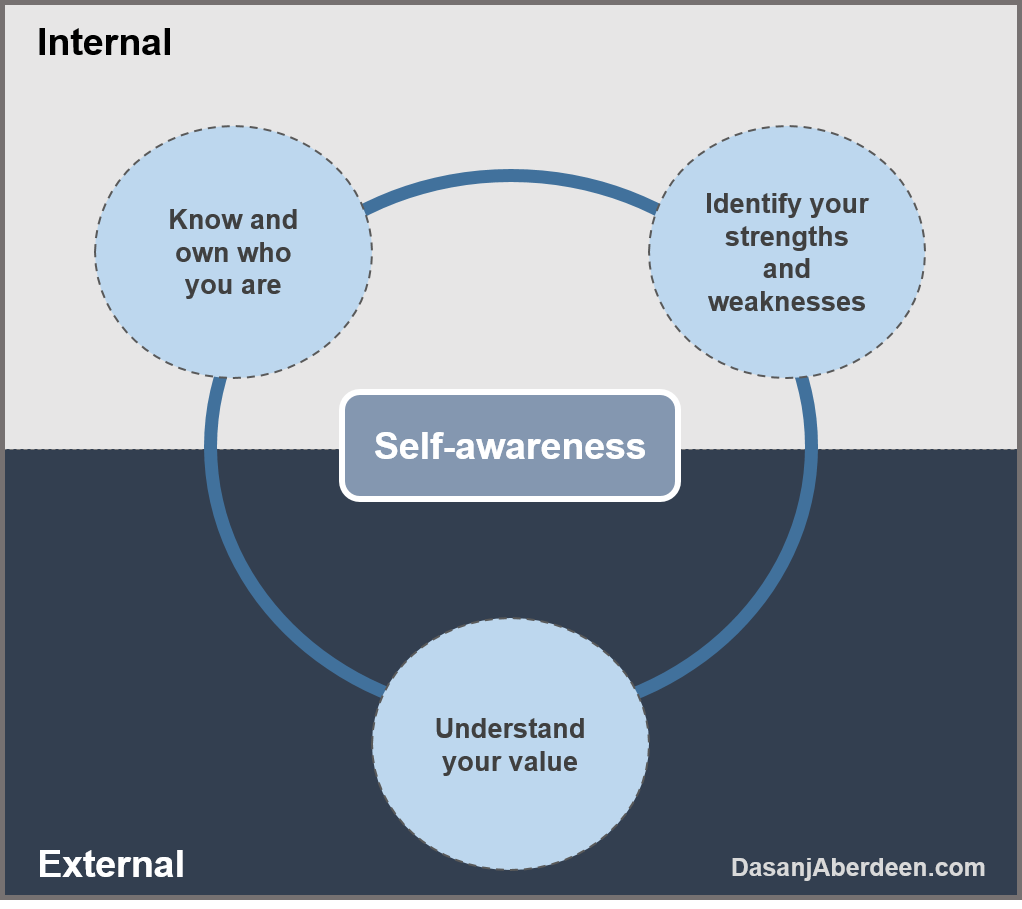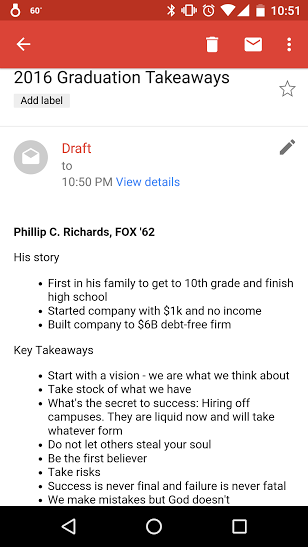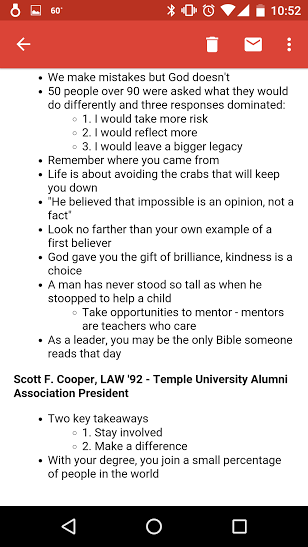President Barack Obama is down to his final days in office as we’re reminded by his farewell address. The 44th President of the United States was a noticeably different politician from the moment he came onto the scene and has been an inspiration throughout. His good heart and intentions were confirmed in his eight years in the White House. He led the country while being laser focused on upholding the expectations of his position, but he didn’t stop there. Above all, he led by example which provided insight into his integrity and true character. This is true leadership. He’s a true orator, upstanding, poised, just and hopeful. We saw this one more time in his farewell speech as he looked back on his years in office and urged us to remain hopeful for the future. He reminded us he can’t do “Four more years!” when the audience chanted, but he assured us that change is up to us and “Yes we can!”
Leadership is not a position or a title, it is action and example. – Cory Booker
I’ve enjoyed this speech four times so far – watched it twice on TV, once on YouTube while working out and read through the transcript. Below are some of my favorite takeaways from his farewell speech. These words ring true, not only in politics but in life.
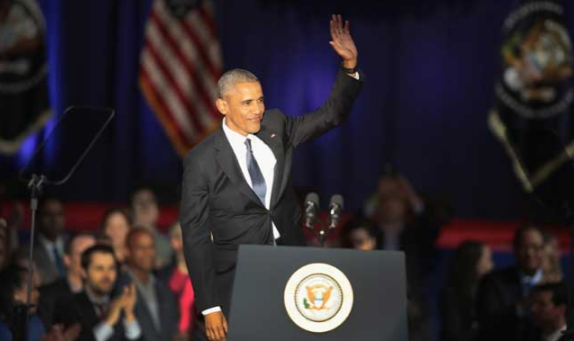
On Learning
Michelle and I have been so touched by all the well wishes that we’ve received over the past few weeks. But tonight, it’s my turn to say thanks. Whether we have seen eye-to-eye or rarely agreed at all, my conversations with you, the American people, in living rooms and in schools, at farms, on factory floors, at diners and on distant military outposts — those conversations are what have kept me honest, and kept me inspired, and kept me going. And every day, I have learned from you. You made me a better President, and you made me a better man.
We get the opportunity to learn from everyone we encounter. Each person has a story or perspective that can enlighten us. Good leaders recognize they don’t have all the answers and they’re open to learning from those around them. Further, they’re willing and ready to give credit where credit is due.
On Starting Out
So I first came to Chicago when I was in my early 20s. And I was still trying to figure out who I was, still searching for a purpose in my life. And it was a neighborhood not far from here where I began working with church groups in the shadows of closed steel mills. It was on these streets where I witnessed the power of faith, and the quiet dignity of working people in the face of struggle and loss. This is where I learned that change only happens when ordinary people get involved and they get engaged, and they come together to demand it.
Surely young Barack Obama didn’t imagine he would one day be President Barack Obama as he took the first steps to figure out himself and his purpose in life. But the universe has a mysterious way of working with you when you get started. Along the way, you learn what works and what doesn’t work. You can only create change by taking action.
On Dreams
What a radical idea. A great gift that our Founders gave to us: The freedom to chase our individual dreams through our sweat and toil and imagination, and the imperative to strive together, as well, to achieve a common good, a greater good.
Being able to translate our ideas and thoughts into something real with action and effort is empowering. But more times than not, we need the help of others. As the saying goes, “it takes a village.” Whether through support, resources, or guidance, we can’t do it alone. Sometimes, what we want to do is more successful by collaborating with others who have that common vision and goal.
On Togetherness
Our youth, our drive, our diversity and openness, our boundless capacity for risk and reinvention means that the future should be ours. But that potential will only be realized if our democracy works.
That’s what I want to focus on tonight: The state of our democracy. Understand, democracy does not require uniformity. Our founders argued. They quarreled. Eventually they compromised. They expected us to do the same. But they knew that democracy does require a basic sense of solidarity — the idea that for all our outward differences, we’re all in this together; that we rise or fall as one.
Innovation provides us with a world of opportunities. With a willingness to try, take risks and pivot, the possibilities are endless. Hope has no limit. One of the best things about innovation is that diversity enhance it. Different ideas, view points and ways of doing things all increase the likelihood of innovation. Whether you’re in this with a partner in business or in your personal life, a shared mission is crucial. That common ground and togetherness helps you tackle and get past anything that comes your way.
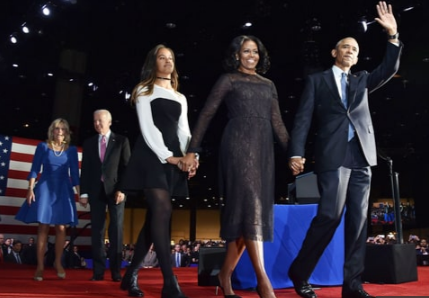
On Race
So if we’re going to be serious about race going forward, we need to uphold laws against discrimination — in hiring, and in housing, and in education, and in the criminal justice system. That is what our Constitution and our highest ideals require.
But laws alone won’t be enough. Hearts must change. It won’t change overnight. Social attitudes oftentimes take generations to change. But if our democracy is to work in this increasingly diverse nation, then each one of us need to try to heed the advice of a great character in American fiction — Atticus Finch — who said “You never really understand a person until you consider things from his point of view…until you climb into his skin and walk around in it.”
Race relations is not an easy or comfortable topic. We all have a point of view based on our own culture, upbringing, environment, influences, etc. Often we remain in our own corner and believe we’re open-minded and understand those who are different from us without engaging with them or hearing their perspective. But how is this possible? You don’t get insight on their “why” or context without conversation. That’s why it is important to “walk in their shoes” so you can understand them and empathize. It takes immersion, engagement, and uncomfortable work to “get it.”
On Staying in Our Own Bubble
And that’s not easy to do. For too many of us, it’s become safer to retreat into our own bubbles, whether in our neighborhoods or on college campuses, or places of worship, or especially our social media feeds, surrounded by people who look like us and share the same political outlook and never challenge our assumptions. The rise of naked partisanship, and increasing economic and regional stratification, the splintering of our media into a channel for every taste — all this makes this great sorting seem natural, even inevitable. And increasingly, we become so secure in our bubbles that we start accepting only information, whether it’s true or not, that fits our opinions, instead of basing our opinions on the evidence that is out there.
This is the easy route. Our own bubble is comfortable and warm. And when that is all we know and live, it is increasingly difficult to see outside of our lens. We become more ingrained in our conviction and double down when alternatives are presented to us. This is scary when the truth and facts are disregarded. With the technology and resources at our disposal in these times, it is easy to fact-check and verify information. What happens when it is “too much work” to do our homework and confirm information? Are we OK doing nothing and convincing ourselves that information that reinforces our belief is correct without having proof?
On Innovation and Problem-Solving
Now, we can and should argue about the best approach to solve the problem. But to simply deny the problem not only betrays future generations, it betrays the essential spirit of this country — the essential spirit of innovation and practical problem-solving that guided our Founders. It is that spirit, born of the Enlightenment, that made us an economic powerhouse — the spirit that took flight at Kitty Hawk and Cape Canaveral; the spirit that cures disease and put a computer in every pocket.
Innovation is a result of finding a solution to a common problem or need. Inherently, this involves first acknowledging there is a problem. Only then can you evaluate the approaches toward a solution and ultimately, agree on the best solution.
On Fear
So let’s be vigilant, but not afraid.
Don’t let fear overpower you. Fear can be paralyzing, if you allow it. It can own your thoughts and actions. Don’t let fear have so much power over your life and livelihood.
On Getting Involved
But remember, none of this happens on its own. All of this depends on our participation; on each of us accepting the responsibility of citizenship, regardless of which way the pendulum of power happens to be swinging. Our Constitution is a remarkable, beautiful gift. But it’s really just a piece of parchment. It has no power on its own. We, the people, give it power. We, the people, give it meaning. With our participation, and with the choices that we make, and the alliances that we forge. Whether or not we stand up for our freedoms. Whether or not we respect and enforce the rule of law. That’s up to us.
So, you see, that’s what our democracy demands. It needs you. Not just when there’s an election, not just when your own narrow interest is at stake, but over the full span of a lifetime. If you’re tired of arguing with strangers on the Internet, try talking with one of them in real life. If something needs fixing, then lace up your shoes and do some organizing. If you’re disappointed by your elected officials, grab a clipboard, get some signatures, and run for office yourself. Show up. Dive in. Stay at it.
We can be bystanders or we can get involved. It is our choice. But we should realize the implications. Nothing changes without action. And the work it takes to create change isn’t a short-term commitment. It involves showing up and staying for the long haul.
On Work
Sometimes you’ll win. Sometimes you’ll lose. Presuming a reservoir of goodness in other people, that can be a risk, and there will be times when the process will disappoint you. But for those of us fortunate enough to have been a part of this work, and to see it up close, let me tell you, it can energize and inspire.
The outcome of your work isn’t guaranteed. There will be both good days and bad. Luck will sometimes be in your favor and other times disappointment will arise. But in the end, it will be worth it. You will have the peace of mind knowing you showed up and did something. That in and of itself is gratifying and if you’ve positively impacted people and things along the way, you’ll be fulfilled.
On Partnership
Michelle — Michelle LaVaughn Robinson, girl of the South Side — for the past 25 years, you have not only been my wife and mother of my children, you have been my best friend. You took on a role you didn’t ask for and you made it your own, with grace and with grit and with style and good humor. You made the White House a place that belongs to everybody. And the new generation sets its sights higher because it has you as a role model. So you have made me proud. And you have made the country proud.
You want your partner to uplift you and make you a better person. At the same time, you want them to be comfortable in their own shoes, take a stance and uplift themselves. It takes a higher purpose and integrity to step into a role that you didn’t seek out and as a result, have an impact on those around you. Being able to do this, rightly makes you a role model.
On Friendship
To Joe Biden — the scrappy kid from Scranton who became Delaware’s favorite son — you were the first decision I made as a nominee, and it was the best. Not just because you have been a great Vice President, but because in the bargain, I gained a brother. And we love you and Jill like family, and your friendship has been one of the great joys of our lives.
President Obama and Joe Biden have had a great working relationship. But above all, they have been great friends and the admiration between the two of them is clear. It is very moving to see the love and brotherhood they’ve shared. This is what life is all about. W can interact with anyone on the surface, but it is these deeper relationships that make life and our experiences meaningful. It is beautiful and touching.
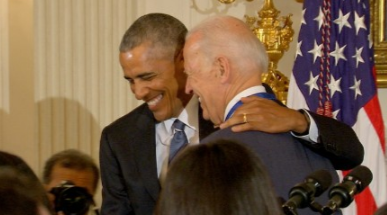
On Purpose
And that’s why I leave this stage tonight even more optimistic about this country than when we started. Because I know our work has not only helped so many Americans, it has inspired so many Americans — especially so many young people out there — to believe that you can make a difference — to hitch your wagon to something bigger than yourselves.
What is the overarching purpose that drives you? We all need this. We need to know our why. This guides our actions and gives our lives meaning. Without it, it is hard to explain why you do what you do. Why do you read instead of watching TV? Why do you volunteer instead of playing video games? The more intentional our actions, the more likely we are to make a difference in the world and in the lives of those around us.
On the Future
Let me tell you, this generation coming up — unselfish, altruistic, creative, patriotic — I’ve seen you in every corner of the country. You believe in a fair, and just, and inclusive America. You know that constant change has been America’s hallmark; that it’s not something to fear but something to embrace. You are willing to carry this hard work of democracy forward. You’ll soon outnumber all of us, and I believe as a result the future is in good hands.
How we are and act today provides insight into our tomorrow. What do you care about? What are you willing to focus on now in order to have a better tomorrow? What sacrifices are you making? What are you standing up for?
On Believing
I do have one final ask of you as your President — the same thing I asked when you took a chance on me eight years ago. I’m asking you to believe. Not in my ability to bring about change — but in yours.
I am asking you to hold fast to that faith written into our founding documents; that idea whispered by slaves and abolitionists; that spirit sung by immigrants and homesteaders and those who marched for justice; that creed reaffirmed by those who planted flags from foreign battlefields to the surface of the moon; a creed at the core of every American whose story is not yet written: Yes, we can.
Yes, we did. Yes, we can.
Believing is the first step. Belief in our ability. Belief that our work and effort will make a difference. Belief that there’s a need to do things differently and that we’re equipped to bring that change. The future isn’t certain. But our mindset is the first step and often our biggest hurdle. Once we get past our own head, the possibilities become endless.
Dasanj Aberdeen is an entrepreneurial spirit who embodies the combination of left-brain logic and right-brain creativity. She is a consultant and proponent of multidisciplinary education, approaches and pursuits. She writes about their benefits in modern times and integrating multiple interests into a sustainable and fulfilling lifestyle. She’s a graduate of The Wharton School of the University of Pennsylvania and Temple University with a concentration in Technology & Innovation Management, jointly delivered by the Fox School of Business and College of Engineering.
